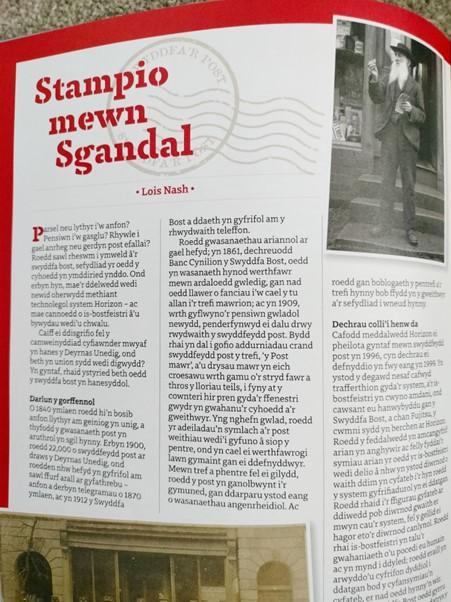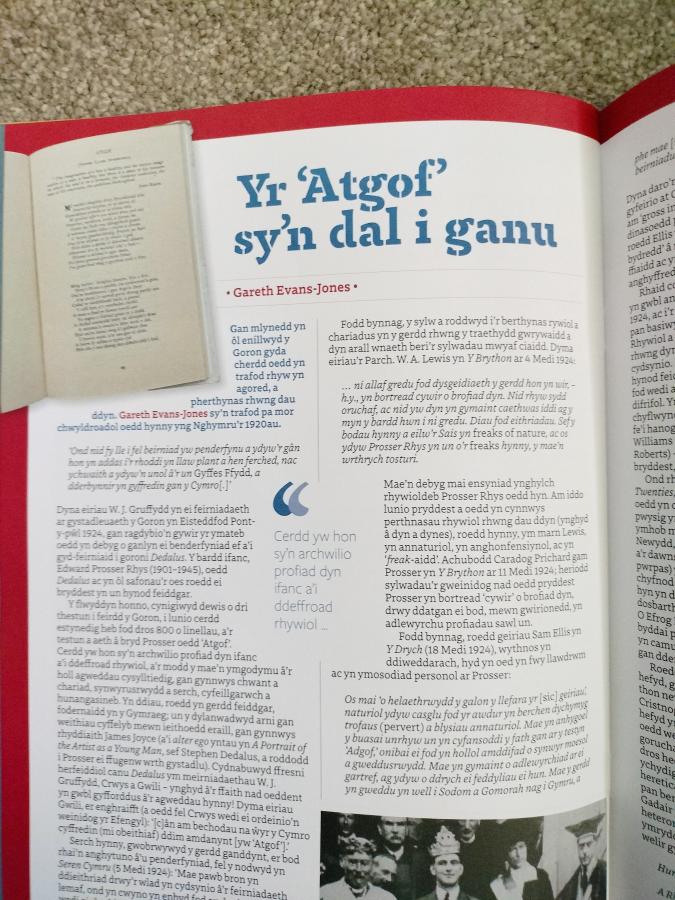The Scandals of the Post Office and the Eisteddfod
Two lecturers from the School of History, Law and Social Sciences have contributed two articles about two different scandals in the summer 2024 edition of Hanes Byw.
One of the most important stories that has been in the news in recent months, and has been the basis of an ITV TV series, along with a book, is how thousands of post office workers were accused and prosecuted. for stealing money, even though it was a computer error behind it all. In her article, 'Stampio mewn Sgandal' ('Stamping in Scandal'), Law lecturer, Ms Lois Nash, discusses the evolution of the post office and how it began to lose its reputation in the 1990s. The influence of the broadcast of the series, Mr Bates vs The Post Office on ITV this year is also mentioned, and reference is made to a very important book, Llythyr Noel: Dal y Post by Noel Thomas, Siân Thomas and Aled Gwyn Jôb, which traces the story of Noel Thomas who was falsely imprisoned, and suffered because of the technical error.

Another scandal, which occurred exactly a century ago, which formed the basis of the article written by Dr Gareth Evans-Jones, lecturer in Philosophy and Religion, 'Yr "Atgof" sy'n dal i ganu' ('The "Memory" that still persists'). At the Pont-y-pool National Eisteddfod in 1924, E. Prosser Rhys won the Crown for a highly controversial extended poem on the subject, 'Atgof', 'Memory'. The work depicts the sexual awakening of a young man but also, and very boldly, discusses a sexual experience between a man and a woman, and two men. The poem was harshly criticized by many, with few noting that 'the poem is better suited to Sodom and Gomora than to Wales'. As such, this article looks at the importance of 'Atgof' in the development of Welsh-language queer literature, whilst also contextualizing the responses in the wider platform of Europe and America in the 1920s.

The Summer 2024 issue of Hanes Byw (issue 4) is available to buy for £4.95
And some copies of the other editions are still available, with one issue including Dr Mari Wiliam's special article about the recent coronation and the coronations of the past in relation to nationalism.

